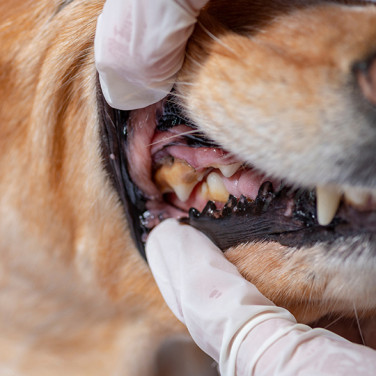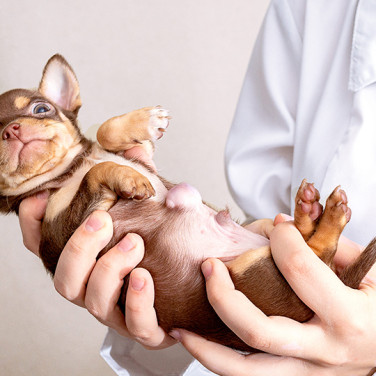FOOD
Can Dogs Eat Beef Liver? Health Benefits and Risks in Feeding Dogs Liv…
페이지 정보
본문


Can dogs eat beef liver? YES!
Beef liver is a nutritious and delicious food for dogs. Unlike muscle meat, organ meats such as beef liver contain higher levels of protein and lower levels of fat. Beef liver is particularly rich in iron, calcium, and vitamins, which support eye and skin health, as well as energy production and immune system function.
While fresh beef liver can be fed raw, it is recommended to cook it to reduce the risk of bacterial contamination before feeding. If you are unable to prepare it yourself, consider feeding commercially available liver-based dog food or treats.
Beef liver nutritional facts for dogs

Beef liver is a low-fat and protein-rich food source that offers a diverse range of nutrients for pets. Beef liver is rich in minerals such as copper, zinc, phosphorus, and iron and also contains essential fatty acids like omega-3. Additionally, the high levels of vitamins A and B vitamins in beef liver promote eye and skin health in dogs.
Health benefits of feeding beef liver to dogs
-
Protein
Proteins are essential nutrients that provide amino acids, promote muscle growth, and generate energy.
-
Vitamins
- Vitamin A: Strengthens the immune system and maintains healthy skin, coat, and eyesight.
- Vitamin B: Helps with healthy metabolic activity.
-
Minerals
- Iron: Supports the formation of red blood cells and hemoglobin. Hemoglobin carries oxygen throughout the body to help generate energy.
- Copper: Helps in the formation of the body's skeletal system and metabolism of iron.
- Zinc: Zinc is an important mineral that plays a crucial role in various metabolic processes within the body. It boosts the immune system, contributes to healthy skin and hair, and is essential for vital bodily functions such as cell division.
How to safely prepare beef liver for dogs

Fresh beef liver can be served raw, but it is recommended to cook it first to reduce the risk of parasites that may be present in raw meat. To prepare, boil in hot water for 15 minutes or bake in the oven and then cut into bite-sized pieces. Ensure that you do not add any salt, oil, or spices as they can cause several digestive issues for dogs.
If fresh beef liver is difficult to obtain or prepare, there are alternative options such as feed containing liver, beef jerky made with cow liver, and freeze-dried snacks. Freeze-dried snacks can be used for training, play, or as a topping for meals.
It's important to note that when feeding beef liver for the first time, a small amount should be given and any symptoms of vomiting, diarrhea, or other abnormal reactions should be monitored.
How much beef liver can I give my dog per day?
A guide to a homemade diet states that organ meats should comprise less than 5% of the total diet. The appropriate amount may vary based on the weight or health condition of the dog, but a general guideline is approximately 5g per day for small dogs, 25g for medium-sized dogs, and 50-70g for large dogs.
Precautions for feeding beef liver to dogs
Danger of excessive vitamin A and iron feeding
Beef liver contains high amounts of vitamin A and iron. Excessive consumption of these two can be toxic to dogs. An overdose of vitamin A can lead to liver damage and cause problems with the bones and teeth of a dog. The American Association of Feed Control Officials (AAFCO) recommends a maximum of 62,500 International Units (IU) of vitamin A per 1000 calories. 100 grams of beef liver contains 135 calories and 16,989 IU of vitamin A, so the risk of liver overdose is low. On the other hand, consuming excessive amounts of iron can result in digestive issues such as vomiting and diarrhea, and can even cause seizures or internal bleeding. Please follow our guidelines on how much beef liver to feed a dog and you should avoid these unpleasant symptoms.
Beware of kidney and liver disease in dogs
The liver contains high levels of phosphorus, which can cause problems with dogs that have kidney disease. The liver is also rich in copper, which can lead to problems if your dog has liver-related conditions.
Beef liver can easily spoil
In general, organ meats spoil more easily than meat, so extra care is needed when preparing these meets for dogs.
Beware of food allergies
Allergic reactions can occur when feeding a new food item for the first time and result in intolerance. To test for an allergy, it is recommended to give a small amount of a food and monitor for any signs of a reaction. If your puppy shows any signs of an allergy, it is important to immediately stop feeding and contact your veterinarian.
Signs of an allergic reaction to look out for:
- Skin problems: hives, facial swelling, itchiness
- Digestive problems: vomiting and diarrhea
- Shortness of breath
Wondering if you can feed your dog other foods besides beef liver?

Does your dog also look up at you with those puppy dog eyes whenever you are snacking on something? You know foods like chocolates should not be shared with them but do you search the Internet every time if it’s okay to share a bite of whatever you are eating? The Buddydoc Food Dictionary provides information on hundreds of foods that we consume and informs you whether it is safe for them to consume and the nutritional benefits for your pet. If you're curious about other foods, try searching on Buddydoc!












